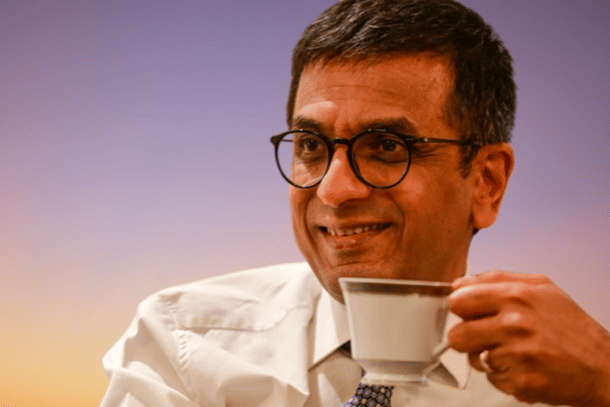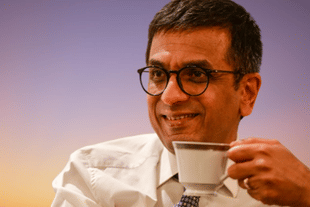News Brief
'Judiciary Not A Substitute For Political Opposition': Former CJI Chandrachud Counters Rahul Gandhi
Arjun Brij
Nov 27, 2024, 02:11 PM | Updated 02:11 PM IST
Save & read from anywhere!
Bookmark stories for easy access on any device or the Swarajya app.


In an exclusive interview with ANI, former Chief Justice of India (CJI) D.Y. Chandrachud addressed comments made by Lok Sabha Leader of Opposition Rahul Gandhi, who suggested that the Opposition has assumed responsibilities traditionally expected of institutions like the judiciary. Chandrachud clarified that the judiciary's primary role is to ensure laws and executive actions align with the Constitution, not to serve as a substitute for political opposition.
“People should not presume that the judiciary should perform the role of the Opposition in Parliament or state legislatures. Too often, there’s a misconception that the judiciary must act as an opposition. We are here to scrutinize laws and assess executive action for its consistency with the law and the Constitution,” Chandrachud stated.
He further emphasized the importance of separating the judiciary’s constitutional mandate from political processes in a democracy. “There’s a distinct space for political opposition, and attempts to use the judiciary as a tool for political opposition undermine its primary function. People often try to shoot from the shoulders of the judiciary, attempting to convert the court into a space for political opposition,” he added.
The remarks were in response to Rahul Gandhi’s statement that the Opposition is “alone working on behalf of the media, investigative agencies, and judiciary.” However, Chandrachud refrained from directly addressing Gandhi or naming any individual, stating, “I don’t want to join issue with the Leader of the Opposition because that’s not the ambit of what we are here to speak.”
Addressing concerns about interactions between members of the judiciary and political leaders, Chandrachud said that such meetings are part of statutory requirements. For instance, appointment committees for key posts often include the Prime Minister, the Chief Justice of India, and the Leader of the Opposition. He explained that while formal discussions are conducted with due diligence, informal conversations are natural and do not compromise judicial independence.
“After you’re done with official discussions, you’re human beings, right? You’re going to spend 10 minutes having a cup of tea, talking about everything under the sun from cricket to movies,” Chandrachud noted.
Arjun Brij is an Editorial Associate at Swarajya. He tweets at @arjun_brij





